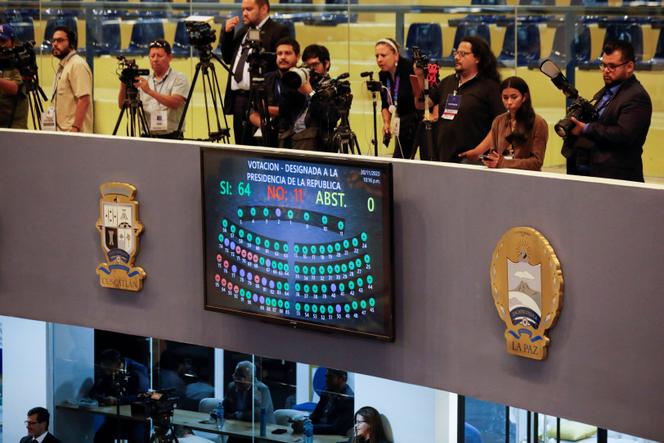

LETTER FROM MEXICO

"We hope the world won't look away from Central America, because the future looks even bleaker for the press," Oscar Martinez, a Salvadoran journalist with the digital media outlet El Faro, stated with an expressionless face, referring to the very likely reelection of president Nayib Bukele in February 2024. The editorial staff of El Faro, whose administrative offices are now based in neighboring Costa Rica, fear that this second term will be an opportunity for an even fiercer crackdown on their investigations.
The Latin American Conference on Investigative Journalism (COLPIN), held from December 6 to December 9 in Mexico City, is one of the rare occasions when the Central American press can come together to organize a response to the ongoing attacks by the region's authoritarian regimes, whether on the left or the right. The panorama presented during the "Central American Journalism in Danger" round table was indeed grim: Investigative journalists have often had to choose exile to avoid prison in recent years.
In El Salvador, 17 journalists have left their country since Bukele came to power in 2019 – a number fairly close to that of Guatemala, with 20 journalists currently residing between Mexico and Costa Rica. But it's Nicaragua that has broken all the records: 20 journalists convicted of "treason to the homeland" and stripped of their nationality; 150 exiled, mainly to Costa Rica, the US, and Spain, following violent protests in 2018 that left almost 300 dead. COLPIN is an opportunity not only to draw attention to these tragedies but also to exchange ideas on the best investigative techniques for evading censorship and pursuing investigations.
"The most difficult thing is to inform while protecting, as much as possible, our journalists who are still in Nicaragua and the few sources within the state apparatus who are still willing to talk to us," said Nicaraguan journalist Martha Irene Sanchez, founder and director of the online media outlet Republica 18, who lives in Costa Rica.
Oscar Martinez, who now pays dearly for any information, spoke of the same difficulties. "Before, we'd simply meet a source for coffee and spend $2. Now, we have to rent an Airbnb or even fly to meet that same person and not put them in danger," stressed the Salvadoran journalist. Guatemala's outlet Vox Populi, also based in Costa Rica, faces social media campaigns orchestrated from the presidential palace to discredit each of its revelations. "The paradox is to note unprecedented repression at the same time as extraordinary quality and creativity in independent media. There has never been so much serious journalism in the region," said Marvin del Cid, one of the two founders of Vox Populi.
You have 50% of this article left to read. The rest is for subscribers only.
